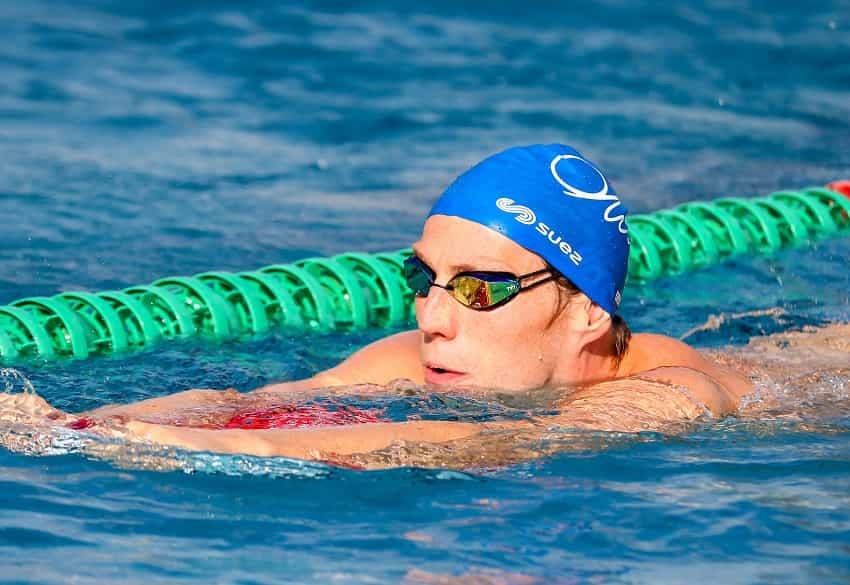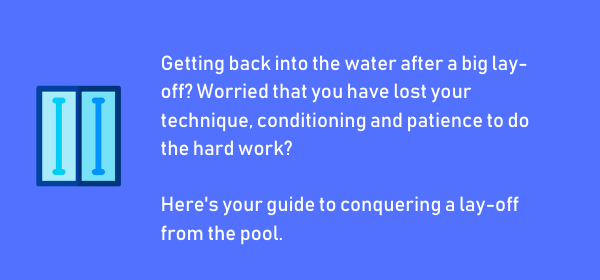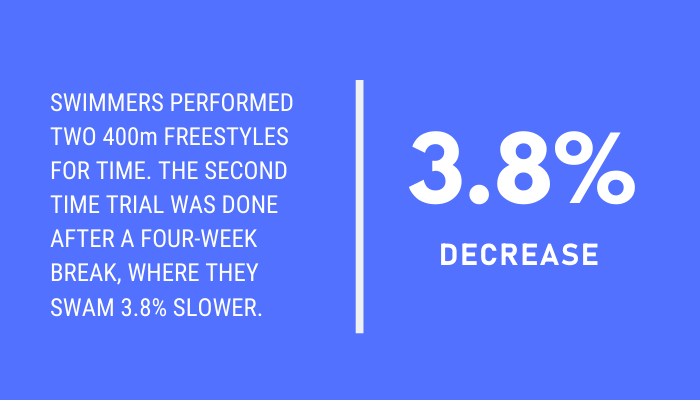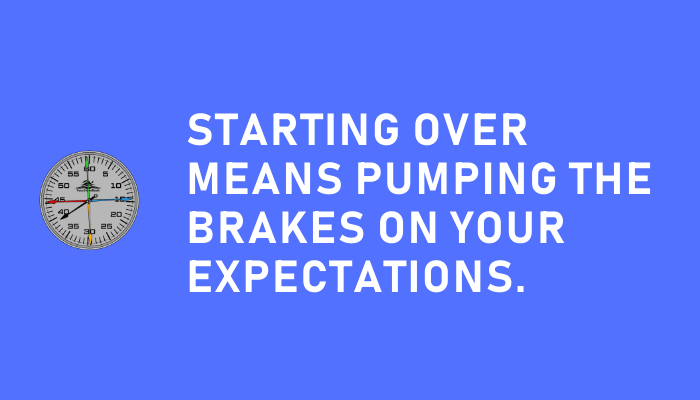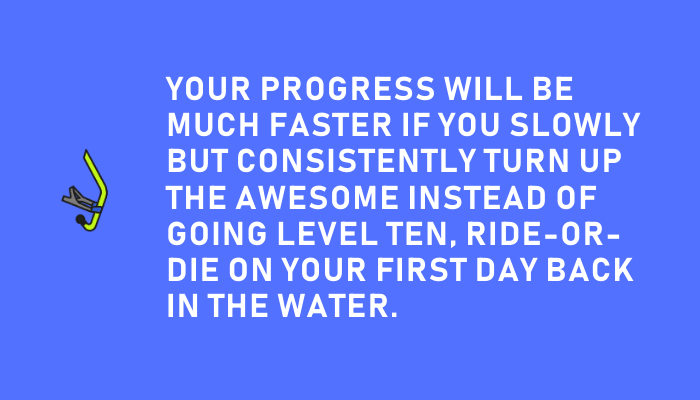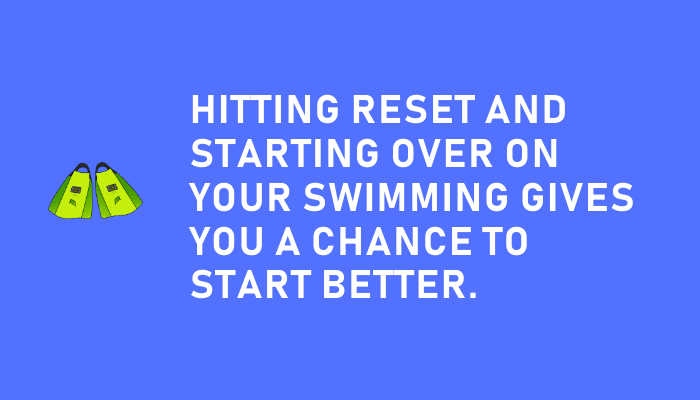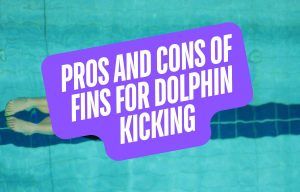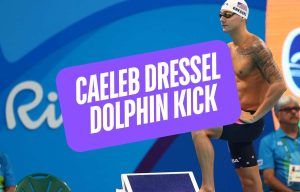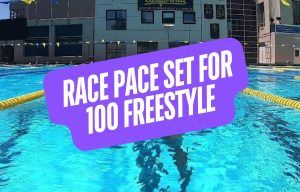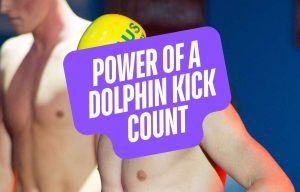Getting back into the swing of things in the pool can feel daunting.
In this guide we are going to cover some of the common misconceptions about detraining and getting back in shape:
- How long it takes for your fitness to go down the drain
- How long you can expect your strength to stick around
- Some key things to remember when getting back in shape
And more.
Here’s what you need to know about getting back in shape in the water.
How long will it take for me to get back into shape?
Now, this is the real question, isn’t it?
How long will it take to get back in shape? How much ground do you have to cover to get back to where you were and beyond? How much of these sweet, sweet gains did you lose while you were sitting on the couch drowning your face in Cheetos?
There are a few different variables at play, and each case is obviously going to be different.
How long the detraining lasts, how physically active you were during that stretch, whether or not you were sick, how old you are, and even what your best stroke is.
(Just kidding on the last one.)
Detraining happens slower than you might think.
One classic study took a group of endurance athletes and found that they lost just 7% of their VO2max after three weeks of inactivity. The loss in fitness bottomed out at 16% after 56 days.
This same study found that some of those precious adaptations you made while getting in shape—increased muscle capillaries, for instance, stick around even after extensive (year-long) bouts of detraining.
While fitness levels can drop after a handful of weeks, your strength takes even longer to shrivel away.
A study of physically active dudes, with an average age of 21 years, found that they kept all of their strength gains after two weeks of sitting on their butts. Strength loss starts to happen around three weeks of inactivity, and the more muscley you are, the more muscle you are likely to lose.
Age and gender also factor into the equation.
Children aged 10-13 can go a full month without losing any of their fitness gains. (Must be nice!) During a 31-week detraining period, men aged 65-75 years will lose almost twice their strength gains as men aged 20-30, while women in both groups lose approximately the same amount of overall strength.
While there is plenty of research on detraining for athletes and non-athletes, what about swimmers in particular?
Researchers pulled together fifteen age group swimmers and had them do a timed 400m freestyle at the end of their season. After a four-week break from the pool, they came back and did another timed 400m freestyle, posting times that were 3.8% slower.
The slower times were attributed to reduced stroke rate and increased peak blood lactate.
Unsurprisingly, swimmers who were more physically active during the four-weeks off swam better than their couch-dwelling teammates.
Some basic guidelines:
- If you have taken a few weeks off from the pool, your strength will still be there, but there will be a slight reduction in your fitness levels.
- For longer breaks, around a year, your cardio will be down 16% and you will have lost half your strength gains.
Hopefully reading this there is a sense of calm coming over you.
Your fitness and strength probably aren’t nearly as gone as you think.
Getting Back in the Water After Taking Time Off
Alrighty, next step!
That whole getting back in shape thing.
Whether you are getting back in the water after the off-season, coming back off a six-month break, or you are getting wet for the first time since they banned rubber tech suits, here are some pointers for getting back into the swing of things quickly.
Suspend expectations.
Those first few laps and strokes will feel weird.
Awkward.
Like you are a swimming somebody else’s stroke.
Tempering your goals and expectations is key in this phase because if you go to the pool after not swimming for two months and expect to be right where I left off or else you are going to get a heaping mouthful of “or else.”
As you ease back into your technique and conditioning, make showing up the goal.
The only goal.
The breakthroughs are there, waiting for you, but only if you keep showing up.
No one ever improved by working hard for two days and giving up because they are frustrated.
And yet, how many times do swimmers carry this attitude and those expectations?
Technique, technique, technique.
Here’s a fun little side benefit of feeling like you are swimming through Jello: you get a chance to wipe the slate clean with your technique.
You are already feeling gnarly and struggley in the water, so this is a perfect time to attack a couple of those technical weaknesses you have been avoiding.
Do a ton of sculling to get your feel for the water back. Throw all the drills at your stroke. Work on body positioning, breathing properly, catching the water.
No matter how out-of-shape you are, working on technique is something you can always spend a significant amount of time and effort on.
Avoid the urge to go full beast-mode on day one.
Destroying yourself on day one might make you feel like you are accomplishing something, but this kind of effort likely isn’t very sustainable.
If you go full guerilla-mode on your first workout back, and can’t lift your arms for the rest of the week, I suppose we could say that maybe that big effort was a little counter-productive.
I think we all love the idea of all-out commitment, and this kind of going down in flames on day one appeals to that instinct.
Start easy on the first day and progressively accumulate the effort and meters from there.
Warm up like a total boss.
I know, warming up isn’t always the most fun, and it’s usually where otherwise good technique goes to die a slow, ugly death.
Although warming up properly is something you should be doing anyway, whether it’s at a swim meet or before a killer threshold set, it’s perhaps even more critical when getting back into the swing of things.
Your body is out of practice, and depending on your level of inactivity hasn’t seen effort and exertion in a while. Don’t cold-start that engine without giving it a proper warm-up.
Because you will be more sensitive to how fast you are going and how you feel later in the workout, make sure you spend some solid time getting warm and loose.
Recognize the successes along the way.
Getting back to where you were doesn’t always feel very satisfying. The pride and accomplishment we feel getting back to where we were rarely matches the pleasure we got from achieving all that conditioning and technique in the first place, which makes us particularly vulnerable to being impatient.
We already had it, so why can’t we have it back right meow?
Finding pleasure and recognizing the little wins as you get back into the swing of things is essential to your motivation and self-confidence.
After each workout, tally up a couple little victories in the pages of your logbook. These little jolts of excellence will provide the much-needed boost as you climb back up the mountain.
Use this as an opportunity to reset some lifestyle habits.
If you are coming back from injury, incorporate your rehab and prehab work into your routine. If you’ve always struggled with eating well (especially at night-time when the snacks area particularly seductive), use this new beginning as a chance to meal prep more often.
There’s some benefits of starting over, including being able to CTRL-ALT-DEL some of the things that have held you back in the past. Instead of looking at this as starting over from scratch, view it as starting fresh.
This mindset can be motivating: It’s the same hope and promise we experience at the beginning of the season, New Years, and even Monday mornings.
The Next Step
Okie dokes—we covered some serious ground here.
What are the big takeaways you got from this guide?
Are you going to head down to the pool and work on managing your expectations so that you don’t get frustrated and give up?
Or will you go to sleep tonight knowing that missing a week’s worth of workouts because of injury won’t throttle your chances of swimming fast later in the season?
Let me know, either by reaching out on Twitter, or via my weekly newsletter for competitive swimmers and coaches (sign up here—it’s free, and you will get some bonus swim practices as a little thank-you gift for signing up).

